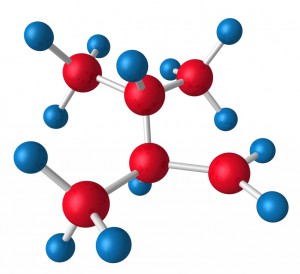Why Amino acids are so important for our life
Amino acids are the smallest components of the protein molecule
The human being is able to form all proteins from only 22 Amino acids which are needed to stay alive. Our daily food intake is transformed by a very complicated and energy consuming process into Amino acids which are built together to form these essential proteins.
In this process, a lot of valuable minerals, trace elements and Vitamins are lost. By supplying free Amino acids that the body can save, the tough digestive work is eased, and the vital substances can be used in full. Following that, the necessary protein for our organisms to build new cells or to repair damaged cells, to create enzymes, antibodies, muscle tissue, hormones and blood cells can be used immediately for re-synthesis which fundamentally increases efficiency.
Normal protein synthesis should be subject to a hormone controlled and organized composition and development program which uses genetically stipulated hereditary information typical for cells and tissue. Amino acids are a basic part of all cell membranes, and thereby indispensable for transport and for the proper functioning of receptors. Proteins from meat and milk are different from for instance grain, soy and nuts. They are roughly subdivided into animal proteins and sources from plants.
Amino acids are indispensable in the course of all metabolism events, they are the carrier of the information for each new cell version, and play a fundamental role in the independent body defense system (immune globulin). They are responsible for the transport of hemoglobin and oxygen, vitamins and minerals in the blood and they aid hormonal functions.
Muscle contraction is dependent on proteins. They help to regenerate the mucous membrane of the intestine together with vitamins, minerals and trace elements.
We distinguish between three groups (Aminoacid – Proteins):
- Essential AA: the body is not able to produce them itself, and they must be received from the daily intake of food.
- Semiessential AA: under certain metabolism conditions these AA can’t be created. Their production depends upon the condition of the organism.
- Not essential AA: the body is able to create the proteins, as long as enough nitrogen can be realized from other AAs. Single AAs are going to be converted to Di-Tri-Polypeptides. They are known as Peptides.
Before using supplements such as orthomolecular medicines, advice should be sought from a physician or pharmacist who is well-informed about orthomolecular treatments. Information provided here is not intended to give or represent a medical diagnosis or treatment plan.
Medical questions sent via e-mail cannot be answered.

